#Writing reference
Explore tagged Tumblr posts
Text
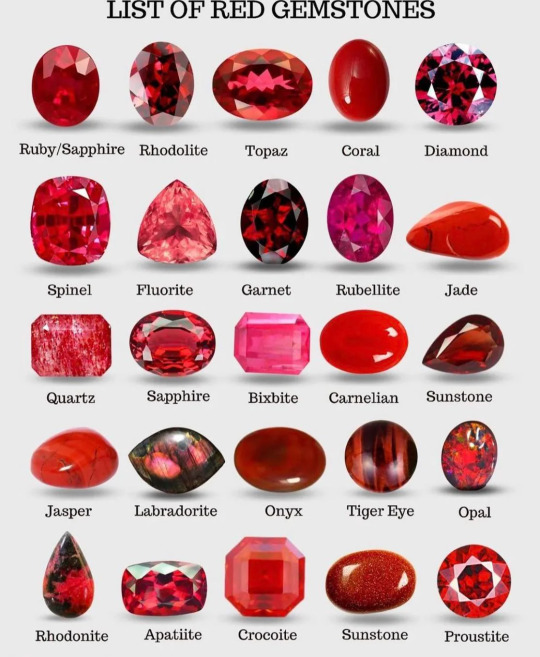
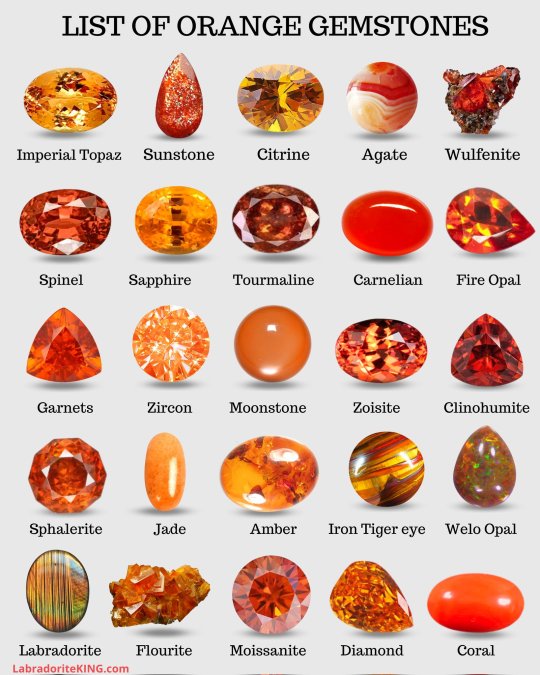
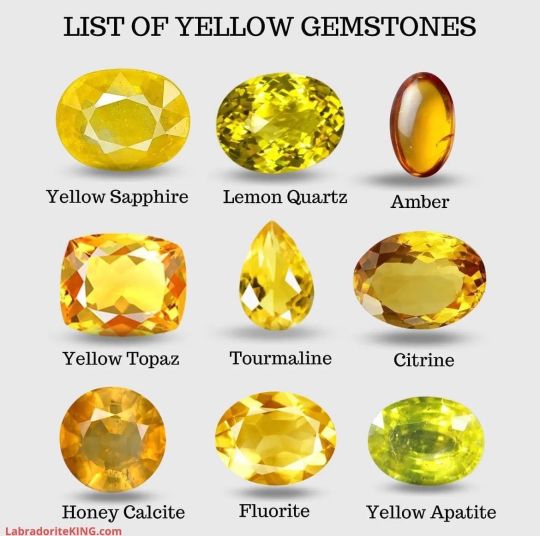
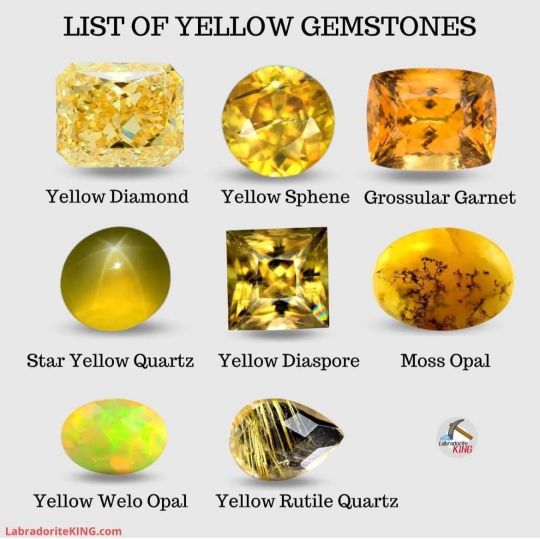
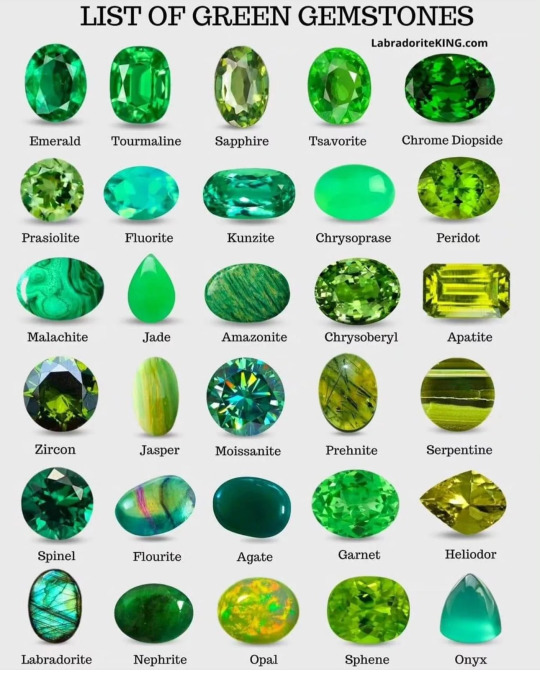
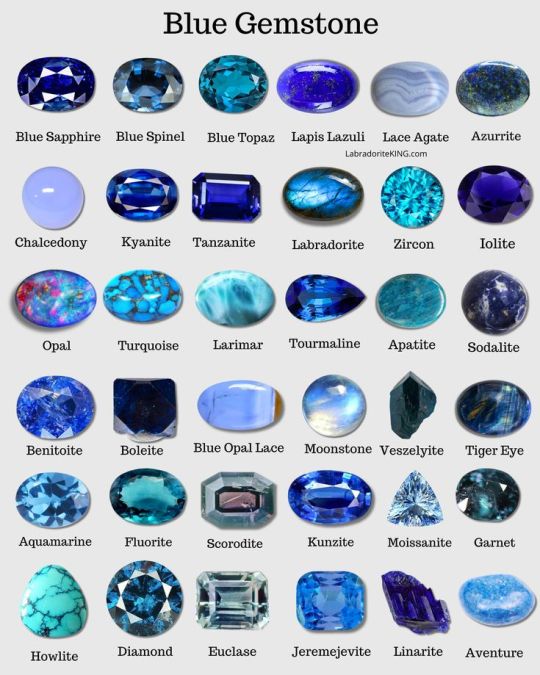
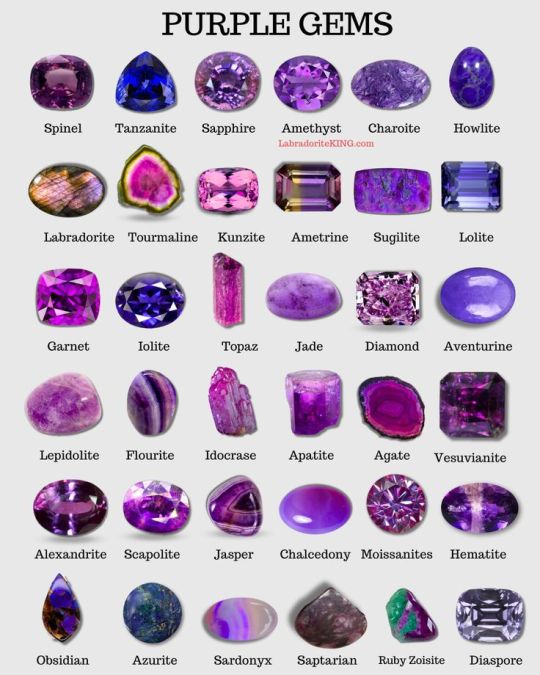
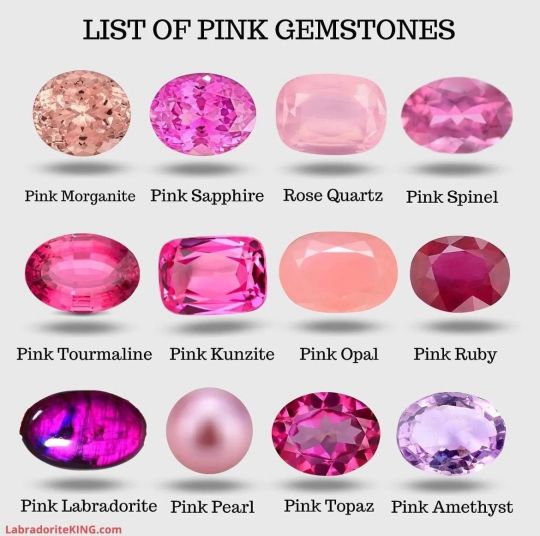
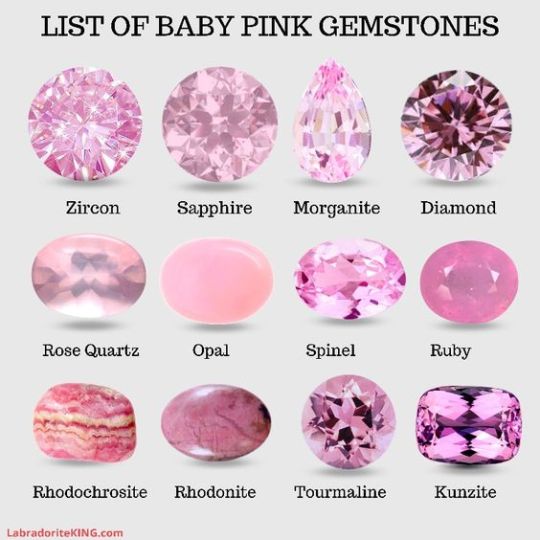
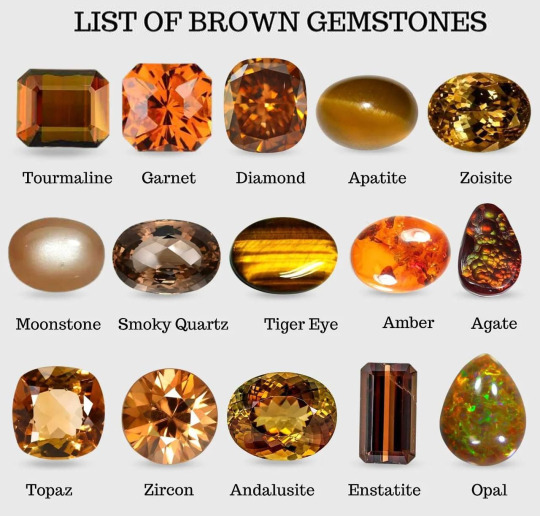
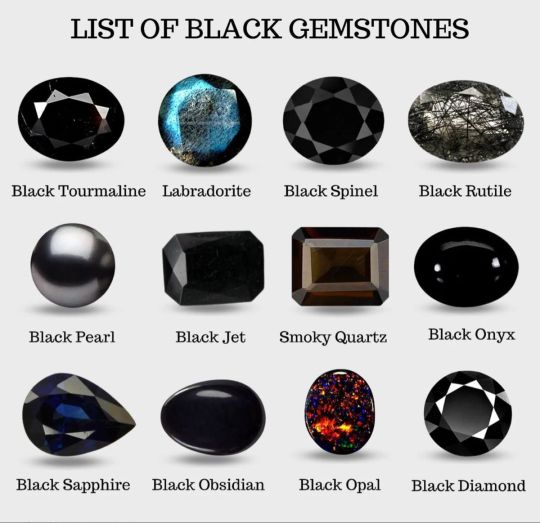

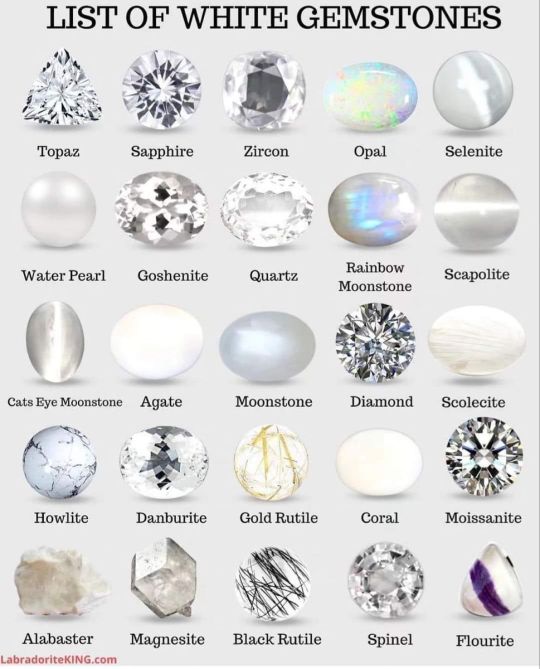
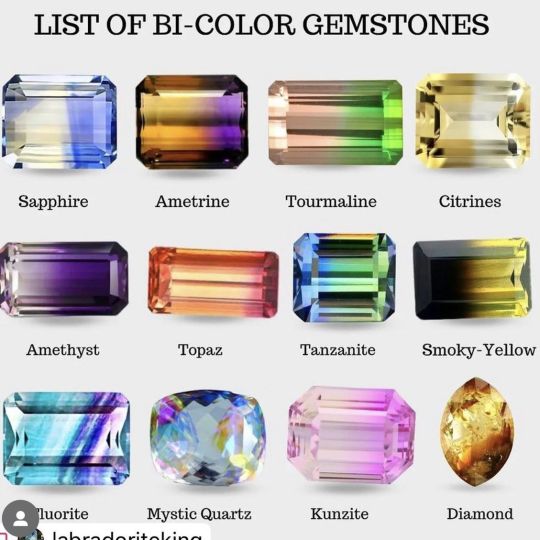
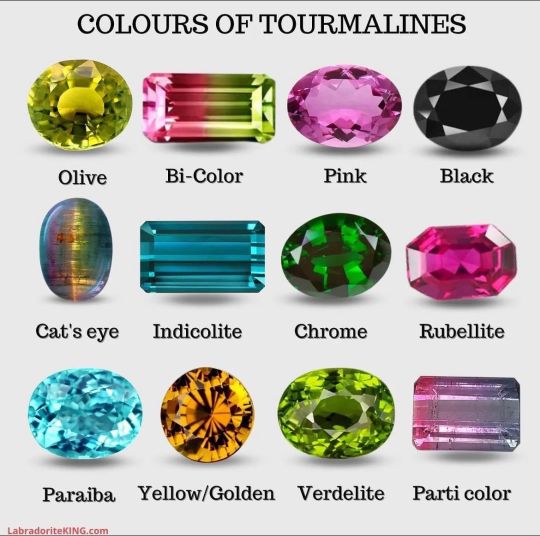
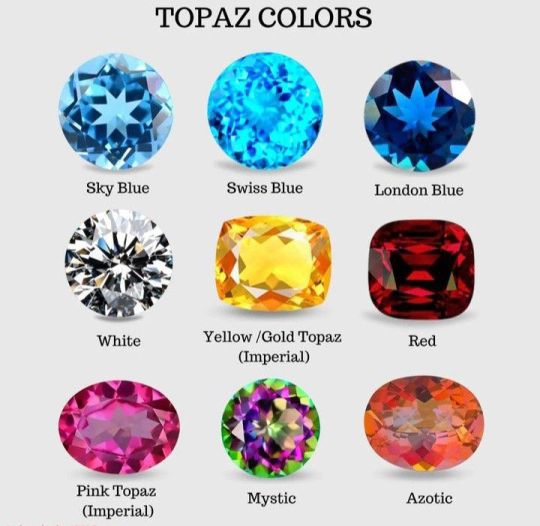
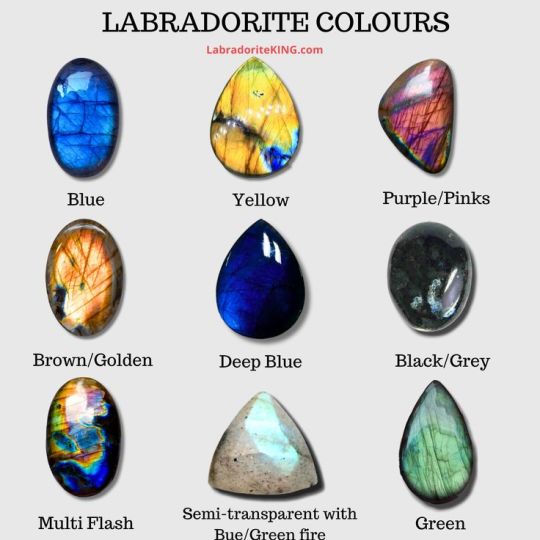
By LabradoriteKing on Pinterest
#Tutorials & References#Gemstones#Jewels#Art Reference#Writing Reference#Gemstones Reference#If the original marker wants me to take this down I will
167K notes
·
View notes
Text
Reference for atmosphere
How to create an atmosphere: Forest
Sight
tall trees with thick canopies of leaves
alternating light coming in through the moving leafs of the trees
ground covered with a mix of grass, ferns, and fallen leaves
wildflowers adding splashes of colour
animals like deer, boars, squirrels, birds
insects like butterflies and bees add movement and life to the scene
Hearing
the air is filled with the melodious songs of birds
gentle rustling of leaves as the wind moves through the trees
constant hum and buzz of insects
the soft crunch of leaves, twigs, and soil while walking through the forest
Touch
the spongy feel and the soft coolness of moss
the rough texture of tree bark
the cooler temperature in the forest
with a gentle breeze that can be felt on your skin
Smell
the smell of fresh grass
the rich, earthy smell of soil and decaying leaves
the scent of fresh leaves, pine needles, and blooming flowers
the smell of the clean, slightly damp scent of water and wet earth from a nearby stream or pond
Taste
the clean taste of fresh air
the taste of sweet and tangy wildberries
the taste of self-picked mushrooms
the taste of edible wildflowers
the taste of a variety of nuts
the taste of wild greens
More: How to create an atmosphere
5K notes
·
View notes
Text
When your Character...
Gets into: A Fight ⚜ ...Another Fight ⚜ ...Yet Another Fight
Hates Someone ⚜ Kisses Someone ⚜ Falls in Love
Calls Someone they Love ⚜ Dies / Cheats Death ⚜ Drowns
is...
A Ballerina ⚜ A Child ⚜ Interacting with a Child ⚜ A Cheerleader
A Cowboy ⚜ A Genius ⚜ A Lawyer ⚜ A Pirate ⚜ A Spy
A Wheelchair User ⚜ A Zombie ⚜ Beautiful ⚜ Dangerous ⚜ Drunk
Funny ⚜ In a Coma ⚜ In a Secret Society ⚜ Injured ⚜ Shy
needs...
A Magical Item ⚜ An Aphrodisiac ⚜ A Fictional Poison
A Coping Strategy ⚜ A Drink ⚜ A Medicinal Herb ⚜ A Mentor
Money ⚜ A Persuasion Tactic ⚜ A Quirk ⚜ To be Killed Off
To Become Likable ⚜ To Clean a Wound ⚜ To Self-Reflect
To Find the Right Word, but Can't ⚜ To Say No ⚜ To Swear
loves...
Astronomy ⚜ Baking ⚜ Cooking ⚜ Cocktails ⚜ Food ⚜ Oils
Dancing ⚜ Fashion ⚜ Gems ⚜ Herbal Remedies ⚜ Honey
Mushrooms ⚜ Mythology ⚜ Numbers ⚜ Perfumes
Roses ⚜ Sweets ⚜ To Argue ⚜ To Insult ⚜ To Kiss
To Make False Claims ⚜ Wine ⚜ Wine-Tasting ⚜ Yoga
has/experiences...
Allergies ⚜ Amnesia ⚜ Bereavement ⚜ Bites & Stings
Bruises ⚜ Caffeine ⚜ CO Poisoning ⚜ Color Blindness
Facial Hair ⚜ Fainting ⚜ Fevers ⚜ Food Allergies
Food Poisoning ⚜ Fractures ⚜ Frostbite ⚜ Hypothermia
Injuries ⚜ Jet Lag ⚜ Kidnapping ⚜ Manipulation ⚜ Mutism
Pain ⚜ Paranoia ⚜ Poisoning ⚜ More Pain & Violence
Scars ⚜ Trauma ⚜ Viruses ⚜ Wounds
[these are just quick references. more research may be needed to write your story...]
Writing Resources PDFs
#requested#writing reference#character development#writeblr#dark academia#spilled ink#writing prompts#writing inspiration#writing ideas#creative writing#compilation#fiction#light academia#literature#writers on tumblr#writing prompt#poets on tumblr#writing tips#writing advice#writing resources#updated: december 2024
25K notes
·
View notes
Text
one more list of "troublesome" words
waiver, waver
Waiver - a relinquishment of a claim
Waver - to hesitate
whence
”And man will return to the state of hydrogen from whence he came” (Sunday Telegraph).
Although there is ample precedent for from whence—the King James Bible has the sentence “I will lift up mine eyes unto the hills, from whence cometh my help”—it is nonetheless tautological.
Whence - means “from where”
It is enough to say “to the state of hydrogen whence he came.”
wound, scar
The two are not as interchangeable as writers sometimes casually make them.
A scar - what remains after a wound heals
Thus it is always wrong, or at least stretching matters, to talk about a scar healing, including in figurative senses.
who, whom
For those who are perennially baffled by the distinction between these two relative pronouns, it may come as some comfort to know that Shakespeare, Addison, Ben Jon-son, Dickens, Churchill, and the translators of the King James Bible have equally been flummoxed in their time.
The rule can be stated simply:
Whom - used when it is the object of a preposition (“To whom it may concern”)
or verb (“The man whom we saw last night”)
or the subject of a complementary infinitive (“The person whom we took to be your father”).
Who - used on all other occasions.
Source ⚜ More: On Vocabulary ⚜ Writing Basics ⚜ Writing Resources PDFs
#writeblr#grammar#studyblr#langblr#linguistics#dark academia#vocabulary#light academia#writing prompt#literature#poetry#writers on tumblr#poets on tumblr#writing reference#spilled ink#creative writing#fiction#novel#writing resources
148 notes
·
View notes
Text
🌙💙🤍
Unique English words for writing 2:
Opiate (v.) - To dull pain the way someone would with opioids/opium
Ecdysis (n.) - Shedding of the skin in reptiles, shedding of outer cuticle/exoskeleton in arthropods and insects
Clowder (n.) - A group of cats
Polypharmacy (n.) - Simultaneous use of multiple drugs to treat one or multiple conditions.
Sempiternal (adj.) - Everlasting, unchanging
Dwale (n.) - Belladonna / nightshade
Fleet (adj.) - (Of water) to be shallow
Opulence (n.) - A lot of wealth, luxuriousness
Sibilant (adj.) - Making a hissing sound
Sozzled (adj.) - To be very drunk
Incendiary (adj.) - Designed to create conflict
Chatoyant (adj.) - Having a changing luster/shine
Cessation (n.) - The process/fact of coming to an end or being brought to an end
Eventide (n.) - The end of the day, eve
Luculent (adj.) - Brightly shimmering
#for some words there are tons of meanings so I can't add them all but yk#🌙💙🤍#yyprompts#dialogue prompt#writeblr#writing ideas#writing reference#writing#writing resources#writing research#writing related#on writing#creative writing#writerscommunity#writing advice#writing tips#rare words
731 notes
·
View notes
Text
Word Lists
will update this every few weeks/months. alternatively, here are all my tagged word lists.
Blood ⚜ Blush ⚜ Book ⚜ Eye ⚜ Flower ⚜ Fly ⚜ Girl / Boy
Glow ⚜ Gold ⚜ Heaven ⚜ Hell ⚜ Honey ⚜ Moon ⚜ Sun
Sick ⚜ Soul ⚜ Time ⚜ Ward ⚜ Water
Collections
"Beautiful" Words: Part 1 2 3 4 5 6 7 8
"Poetic" Words: Part 1 2 ⚜ "Ugly" Words
Animals ⚜ Dance ⚜ Emotions ⚜ Garden ⚜ Kill ⚜ Personality Traits
Food: Part 1 2 3 4 5 ⚜ Aphrodisiacs ⚜ Drinking
Love: Part 1 2 ⚜ Sex Scenes ⚜ Sensory Words ⚜ Saying No
Palindromes ⚜ Shapes ⚜ Voice ⚜ 1930s Slang ⚜ Habitats
Legendary Creatures ⚜ Parts of a Castle ⚜ Silent Letters
Lexical Universals ⚜ Magical Properties of Oils
Loan Words: French in Middle English ⚜ Nonsense Words
Months: August ⚜ September ⚜ October
Seasons: Autumn ⚜ Spring ⚜ Summer
Topics List: Part 1 2 ⚜ Terms of Endearment
Uncommon Words: Body ⚜ Emotions
Characters
Achilles ⚜ Patrolcus ⚜ Amy Dunne ⚜ Aphrodite
Aragorn ⚜ Arwen ⚜ Hannibal ⚜ Will Graham
Giorno ⚜ Josuke ⚜ Katniss ⚜ Morticia
Languages
Ancient Greek ⚜ Czech ⚜ Greek Words for Love
French Part 1 2 ⚜ Italian ⚜ Japanese ⚜ Latin
Portuguese ⚜ Romanian ⚜ Russian ⚜ Spanish
Literature
Sylvia Plath ⚜ The Secret History
all posts are queued. send questions/requests here ⚜ Writing Resources PDFs
#words#langblr#writing inspiration#writeblr#dark academia#spilled ink#writing reference#literature#writers on tumblr#poets on tumblr#light academia#lit#poetry#writing resources
2K notes
·
View notes
Text
List of 400+ Dialogue Tags
Below is a full (but not exhaustive) and updated list of dialogue tags. Dialogue tags are a widely debated topic for writers, some saying you should only use said, others arguing the opposite. You will get no opinion for me—only a list to use as you wish :D
Some words may differ in categories based on context.
Expressing Agreement or Confirmation
Acknowledged, Admitted, Affirmed, Agreed, Apologized, Confirmed, Conceded, Gibed, Professed, Reassured, Verified, Vouched
Initiating or Continuing Conversation
Added, Began, Chimed In, Commented, Continued, Conversed, Discussed, Elaborated, Greeted, Interjected, Offered, Proposed, Remarked, Went On
Making a Declaration or Announcement
Announced, Attested, Declared, Decreed, Emphasized, Enunciated, Proclaimed, Revealed, Stated, Voiced
Formal or Deliberate Communication
Chanted, Concurred, Observed, Postulated, Preached, Put Forth, Reasoned, Surmised, Testified
Indirect Communication
Digressed, Hinted, Implied, Insinuated
Providing Information, Explanation or Speculation
Alleged, Articulated, Asserted, Clarified, Doubted, Equivocated, Explained, Guessed, Imparted, Informed, Lectured, Noted, Predicted, Quoted, Recited, Reported, Theorized
Expressing Doubt or Uncertainty
Doubted, Faltered, Guessed, Hesitated, Pondered, Questioned, Speculated, Wondered, Ventured
Seeking or Giving Advice
Advised, Coaxed, Proposed, Recommended, Remonstrated, Suggested, Supposed, Urged
Animalistic
Barked, Croaked, Growled, Hissed, Hooted, Howled, Hummed, Roared, Snarled
Expressing Discontent or Frustration
Complained, Fretted, Grumbled, Protested, Ranted
Demonstrating Authority or Command
Avowed, Commanded, Crowed, Decided, Demanded, Dictated, Directed, Insisted, Instructed, Maintained, Ordered, Pressed, Proclaimed, Reprimanded
Displaying Confidence or Assertiveness
Asserted, Assured, Boasted, Bragged, Claimed, Piped Up, Pledged, Spoke Up, Told, Vowed
Exhibiting Anger or Aggression
Accused, Bristled, Challenged, Cursed, Erupted, Exasperated, Fumed, Groaned, Huffed, Raged, Seethed, Snapped, Spat, Stormed, Swore, Threatened, Whinged
Displaying Sadness or Despair
Anguished, Bawled, Bemoaned, Blubbered, Cried, Despaired, Grieved, Lamented, Mourned, Sobbed, Wept, Whimpered, Worried
Persuasiveness
Appealed, Begged, Cajoled, Convinced, Persuaded, Petitioned, Pleaded, Prayed
Conveying Fear or Worry
Cautioned, Entreated, Gasped, Quaked, Shuddered, Stressed, Trembled, Warned
Softly or Quietly
Breathed, Called, Crooned, Murmured, Mumbled, Muttered, Sighed, Whispered
Loudly or Forcefully
Bellowed, Boomed, Cried Out, Hollered, Screamed, Screeched, Shouted, Shrieked, Thundered, Wailed, Whooped, Yelled
Demonstrating Disgust or Disdain
Cringed, Gagged, Griped, Groused, Rasped, Scowled, Sneered, Snorted
Expressing Mockery, Disrespect or Sarcasm
Dared, Imitated, Insulted, Jeered, Mimicked, Mocked, Ribbed, Ridiculed, Scoffed, Snickered, Taunted
Doing Annoyingly
Gloated, Goaded, Nagged, Pestered, Provoked, Sassed, Tattled
Emotional or Expressive Communication
Grunted, Mewled, Panted, Quavered, Sniffled, Snivelled, Squawked, Whined, Yowled
Showing Empathy or Comfort
Comforted, Consoled, Empathized, Soothed, Sympathized
Indicating Thoughtfulness or Reflection
Contemplated, Echoed, Mused, Pondered, Recalled, Reflected, Remembered, Reminded, Reminisced, Retorted, Reiterated
Expressing Humour or Amusement
Cackled, Chirped, Chuckled, Giggled, Guffawed, Jested, Joked, Laughed, Quipped
Revealing Information
Confessed, Confided, Divulged, Disclosed, Expressed, Hinted, Revealed, Shared, Spilled, Uttered
In a Flirtatious Way
Bantered, Cooed, Flirted, Joshed, Moaned, Purred, Teased
Demonstrating Surprise or Astonishment
Gasped, Marvelled, Yelped
Indicating Hesitation or Reluctance
Faltered, Hesitated, Stammered, Stuttered
Engaging in a Dispute or Argument
Argued, Bargained, Bickered, Contended, Debated, Disputed, Negotiates, Objected, Rebutted, Shot Back
Showing Enthusiasm or Excitement
Beamed, Blurted, Cheered, Exclaimed, Gushed, Raved, Rejoiced, Sang, Squealed, Trumpeted
Expressing Approval or Praise
Applauded, Complimented, Encouraged, Exhorted, Extolled, Lauded, Praised
Speaking in a Continuous or Repetitive Manner
Babbled, Chattered, Jabbered, Rambled, Rattled On, Repeated
Questions and Answers
Answered, Asked, Cross-examined, Inquired, Implored, Probed. Prodded, Prompted, Queried, Questioned, Quizzed, Requested
Expressing Criticism or Disagreement
Challenged, Chastised, Chided, Condemned, Corrected, Countered, Criticized, Deflected, Demurred, Denounced, Scolded
Negative or Deceptive Communication
Denied, Droned, Exaggerated, Interrupted, Lied
Finishing the Conversation
Concluded, Finished, Thanked
Neutral or Miscellaneous
Admired, Consented, Foretold, Invited, Mentioned, Mouthed, Pointed Out, Replied, Said, Sputtered, Volunteered
Happy Writing!
#creative writing#tumblr writers#writing#novel writing#writing advice#fiction#writer#writing community#writeblr#dialogue tag#character dialogue#dialogue#writing reference#reference#writing resources
3K notes
·
View notes
Text
How to Start Writing Again When the Spark Fades
Sometimes the well of creativity runs dry, leaving you staring at a blank page with nothing but frustration. But trust that the art of writing is as much about the journey as it is about the destination. Here are some ideas to help you reconnect with your writing practice when you feel like your passion has dimmed.
Redefine Your Environment Consider taking a deliberate step outside your usual writing space. The environment in which you work can drastically affect your mindset and creative flow. Even if it’s setting up in a different corner of your home, finding refuge in a local café, or enjoying the subtle distractions of a park bench, a change in scenery often signals a mental reset. This isn’t about permanent relocation, just a simple shift can break the monotony and stir new ideas that have been hiding in plain sight.
Embrace Imperfection The pressure to produce perfect prose can be paralyzing. Give yourself permission to create something imperfect yet honest. Think of every sentence you write as a rough sketch, a necessary experiment in understanding your own voice. When you allow yourself the space to write without the weight of perfection, you invite experimentation and genuine self-expression. That freedom lies at the heart of rediscovering why you fell in love with writing in the first place.
Set Incremental Goals for Continuous Momentum When the idea of diving into a full chapter feels overwhelming, scale back to manageable, bite-sized projects that feel achievable. Instead of demanding a polished page, challenge yourself to write a paragraph or even a single sentence each day. These micro-goals build a foundation of small successes, gradually restoring confidence and momentum. Over time, these consistent efforts enrich your creative reservoir, proving that every little step is indeed a victory.
Engage Deeply in the Process of Freewriting Allow yourself to spill thoughts onto the page without judgment or expectation. Freewriting is an exercise in vulnerability and self-exploration, offering you a space to unburden tangled ideas and unexpected insights. In these unfiltered moments, you might stumble upon a germ of an idea or a rediscovered passion that rekindles your creative fire. Embracing this unstructured approach can transform an intimidating blank page into an open canvas of potential you haven't tapped back into.
Rekindle Old Inspirations There is power in revisiting the work and moments that first ignited your creative spirit. Even if it’s rereading an old journal entry, rediscovering a favorite piece of literature, or reflecting on the stories that once moved you, reconnecting with your past inspirations can shed new light on your present creative journey. This reflective practice not only reminds you of your original passion but may also reveal new directions for your current writing endeavors.
Create a Consistent, Loving Writing Routine Creating a structured yet gentle routine can help reestablish your relationship with writing. Treat your writing time as a vital appointment, a moment carved out just for you. Even if inspiration seems scarce, the simple act of sitting down, opening your notebook, and letting words flow without self-censorship can be incredibly healing. Over time, this practice transforms writing from an obligation into a ritual of self-discovery and mindfulness.
Connect with a Community That Understands Engaging with fellow writers can remind you that you’re not alone in this struggle. The shared experience of creative highs and lows can be profoundly comforting. Join writing groups, participate in online forums, or simply reach out to someone whose work inspires you. These interactions foster a sense of belonging and accountability, encouraging you to keep writing even when the path isn’t clear. In the gentle exchange of ideas and feedback, there is often a spark that reignites your dedication.
Every writer’s journey is unique, filled with ebbs and flows. If you’re feeling disconnected, know that these moments are integral to growth. Embrace each phase as an opportunity to rediscover writing on its own terms, and allow your passion to guide you back into the words you love. If you need any advice from me, never be afraid to send me an ask.
Until next time, Rin T.
#on writing#creative writing#writing#writing tips#writers block#how to write#thewriteadviceforwriters#writeblr#writers and poets#writers on tumblr#novel writing#fiction writing#romance writing#writing advice#writing blog#writing characters#writing community#writing help#writing ideas#writing inspiration#writing guide#writing prompts#writing a book#writing resources#writing reference#writing tips and tricks#writers#writing tools#writing life#writing software
4K notes
·
View notes
Text
How To Scare Your Readers
tw: mentions of murder and other horror media, its not specific or gorey but I just wanted to mention it
Today is one my hardest asks as it is a highly individual process to freaking out your audience with @differentnighttale asking: "How do you write horror, and how do you write it good nail biting and very unsettling type of horror."
Specifically, we are focusing on supernatural horror and dark fantasy. Due to the fact that there are numerous ways of scaring an audience, I'm going to focus on more diverse and interesting ways to freak out the readers. There are obvious tricks like "focus on the tactile senses" and stuff like that but let's cover something not as cliche!
Again, there are many ways to instill horror.
One: Combine Beauty And The Macabre
While this is a common trick seen in visual horror such as the works of Junji Ito or Midsommar, it's also an important and useful element in other beloved horror media.
This can be useful for a myriad of reasons.
The ability to combine the fantastical beauty of the scenery with death or the lovingly detailed imagery of a victimized body might be just the thing to elevate the scenery and visuals.
It also works to surprise your readers. If you are reading horror, you expect the murder and terror to appear in dark hospitals and obviously disgusting places. But what if the horror was in a cherry blossom field? In the church? In the character's childhood bedroom during the sunset?
It follows the perversion of the familiar. Most people internalize certain environments are seperated from society which might assist you if you are going for that specific type of horror. BUT! If you have horror in the supermarket, in the coziest little cottage, in the beauty.
TWO: Focus On A Specific Brand Of Horror
This is especially important for horror that is based off of pop culture spooks such as ghosts, ghouls, witches, zombies, and werewolfs.
Doing some research into why these monsters have survived in the public mind and what exactly is frightening abou them can influence your settings, characters, and horror.
There is horror about isolation.
There is horror about losing yourself.
There is horror about the female body.
There is horror about puberty.
There is horror about gender dysphoria.
There is horror about everything.
Decide what is the core fear you are proding at.
THREE: Be Ambiguous
Readers are comforted by linear stories with a beginning, clearly laid out morality, and a clear cut ending which provides either a happy ending or a sad ending.
Messing up any one of these things can lead to your story haunting the minds of your audience for a long time.
Midsommar is constantly debated about over if the ending is happy or sad.
Joker(2019), a thriller but not a horror, is infamous for it's amazing usage of hallucination and delusion to tell a non-linear story with a confusing ending.
Leaving the ending, villain, characters, or plot ambiguous and not clearly detailed might elevate your horror :)
FOUR: Use Your Own Fears
When you write about what scares you, that natural fear tends to radiate into your writing more naturally :)
This fear can be a lot of things from the specific phobia of bugs to the fear of being mistreated by a loved one.
Conclusion:
I hope I gave you some interesting advice that you haven't heard before @differentnighttale
p.s: at what point does something become "Mature"? I did mention "murder" throughout my post somewhat frequently but I never went into specific detail so I can't tell if it's "Mature" or not?
If it is mature and I mislabeled it then I can edit it to be "Mature"
#writing#writeblr#on writing#writing life#writing requests#writing advice#writing reference#horror#horror movies#thriller#drama#queer writers#writers and readers#writers life#queer horror#writers#creative writing#writerscommunity#writers on tumblr#writer#writers and poets
958 notes
·
View notes
Text
sometimes you need dialogue tags and don't want to use the same four


#they're like synonyms and adjacent words and some of them only loosely fall into the category shown i just needed to stick them somewhere#fanfic writing#writing#creative writing#writers on tumblr#writing dialogue#writing reference#writing tips#synonyms#writing resources#for future reference
174K notes
·
View notes
Text
a list of 100+ buildings to put in your fantasy town
academy
adventurer's guild
alchemist
apiary
apothecary
aquarium
armory
art gallery
bakery
bank
barber
barracks
bathhouse
blacksmith
boathouse
book store
bookbinder
botanical garden
brothel
butcher
carpenter
cartographer
casino
castle
cobbler
coffee shop
council chamber
court house
crypt for the noble family
dentist
distillery
docks
dovecot
dyer
embassy
farmer's market
fighting pit
fishmonger
fortune teller
gallows
gatehouse
general store
graveyard
greenhouses
guard post
guildhall
gymnasium
haberdashery
haunted house
hedge maze
herbalist
hospice
hospital
house for sale
inn
jail
jeweller
kindergarten
leatherworker
library
locksmith
mail courier
manor house
market
mayor's house
monastery
morgue
museum
music shop
observatory
orchard
orphanage
outhouse
paper maker
pawnshop
pet shop
potion shop
potter
printmaker
quest board
residence
restricted zone
sawmill
school
scribe
sewer entrance
sheriff's office
shrine
silversmith
spa
speakeasy
spice merchant
sports stadium
stables
street market
tailor
tannery
tavern
tax collector
tea house
temple
textile shop
theatre
thieves guild
thrift store
tinker's workshop
town crier post
town square
townhall
toy store
trinket shop
warehouse
watchtower
water mill
weaver
well
windmill
wishing well
wizard tower
#worldbuilding#setting prompts#writer resources#writing inspiration#writing prompts#scene settings#writing reference#writing ideas#prompt list#creative writing#writing community#writer prompts#writing tips#world#fantasy world#fantasy worldbuilding#high fantasy#world building#epic fantasy#writing fantasy
114K notes
·
View notes
Text
Fantasy Guide to Political Structures

A Horse! A Horse! My X for a Horse!
Let's be honest, fantasy authors love their kingdoms and empires. You can throw a rock in a bookshop or a library in the fantasy section and you will 99.99999% hit a fantasy book that will be set in or mention either of those structures. But what are they really? What's the difference between them all? Are there any more examples of structures that would suit your WIP better? Are you using the right terms? Let's have a closer look.
Duchy

A Duchy is a small territory ruled by a Duke/Duchess. While Duchies can be found in kingdoms, some duchies were sovereign states in their own right. Duchies are usually small by land mass but some duchies such as Burgundy were extremely powerful and influential. Independent Duchies were usually apart of a kingdom but grew so powerful that they eventually broke away to become a sovereign state in their own right. An example would be modern day Luxembourg, historic Milan and Burgundy.
Principality

A principality is territory ruled by a Prince/Princess. A principality is typically smaller than a kingdom and in some instances, can be apart of a larger kingdom or be a sovereign state. Principalities have a history of having broken away from a larger kingdom or eventually becoming apart of a kingdom. A principality within a kingdom is ruled by a Prince/Princess, usually an heir of the monarch and can be used to train them up to assume the throne in the future. Examples include Monaco, Liechtenstein and Andorra.
Kingdom

A sovereign state/country that is ruled by ruling King or a Queen. A kingdom is much larger and more powerful than a principality. Kingdoms can be feudal, meaning they are ruled in a strict hierarchy or an autocracy where the monarch rules alone with minimal input from the government or constitutional where the monarch is more of a figurehead and the government has a good chunk of control. Examples include England, Thailand and modern day Spain.
Commonwealth

A Commonwealth isn't a popular choice in fantasy but it is an interesting structure. A Commonwealth in its most basic form is a collection of states that are linked by either a shared culture or history. A Commonwealth can be a politically power or an economic power, with every state allowed to participate as much as they like. Not one state leads the others, it is all one group of equals. A Commonwealth can be a good idea for a group of nations that are more powerful together with them keeping their own independence.
Federation

A Federation is a political structure that is made up of united states or countries that are under a single government but each state is still independent and rules itself. Each state can have different laws, different cultures and economies but they all answer to the single government. Examples include the United States of America.
Republic

A Republic is a territory that is ruled by leaders and heads of state that have been elected on merit and by choice of the people. Republics are not just countries but can also be much smaller areas such as cities. Republics are democratic in nature, with the people having a say in who leads them in accordance to a constitution. There are many kinds of Republic: presidential, parliamentary, federal, theocratic, unitary. Examples of Republics include the Republic of Ireland and the city of Florence.
Protectorate

A Protectorate is a country/region/territory that is independent but relies on a larger, more powerful state for protection either in a military or diplomatic sense. A Protectorate was often used by Empires in order to maintain control over an area without annexing it. There are many reasons a larger state and the protectorate would agree to this, mainly the protectorate is much smaller meaning it is far more vulnerable to attack or it has very little power when compared to other states. A Protectorate allows the territory some power to rule itself but the larger state may feel the need or desire to interfere in the dealings of the territory. Examples of protectorates include the client kingdoms of the Roman Empire like Egypt before its annexation and Puerto Rico.
Empire

An Empire is a collection of nations that are united under one sovereign head of state or government. An Empire is formed by one nation steadily taking control of other nations, either through straight invasion and colonization or acquiring them through marriage and other less violent ways. An Empire is powerful mainly because it can drum up more resources, more influence and more military power. An Empire might impose the traditions, beliefs and culture of its principal nation - the nation that started it all - onto its colonies for better control and feeling of uniformity. Empires never last, that is something to always remember. Empires will eventually fragment due to the vast size and sometimes revolt among the conquered states. Examples of empires include the Roman Empire, the Byzantine Empire, the Ottoman Empire.
#fantasy guide to political structures#kingdoms#empires#writeblr#writing reference#writing resources#writing#writing advice#writer#writer's problems#spilled words#writer's life#fantasy guide#creative writing#writing fantasy#writing community#writing inspiration#writing prompt#writing problems#on writing#writers#writing help#writing tips#wtwcommunity#writing guide
5K notes
·
View notes
Text
Writing Notes & References
Alchemy ⚜ Antidote to Anxiety ⚜ Attachment ⚜ Autopsy
Art: Elements ⚜ Principles ⚜ Photographs ⚜ Watercolour
Bruises ⚜ Caffeine ⚜ Color Blindness ⚜ Cruise Ships
Children ⚜ Children's Dialogue ⚜ Childhood Bilingualism
Dangerousness ⚜ Drowning ⚜ Dystopia ⚜ Dystopian World
Culture ⚜ Culture Shock ⚜ Ethnocentrism & Cultural Relativism
Emotions: Anger ⚜ Fear ⚜ Happiness ⚜ Sadness
Emotional Intelligence ⚜ Genius (Giftedness) ⚜ Quirks
Facial Expressions ⚜ Laughter & Humour ⚜ Swearing & Taboo
Fantasy Creatures ⚜ Fantasy World Building
Generations ⚜ Literary & Character Tropes
Fight Scenes ⚜ Kill Adverbs
Food: Cooking Basics ⚜ Herbs & Spices ⚜ Sauces ⚜ Wine-tasting ⚜ Aphrodisiacs ⚜ List of Aphrodisiacs ⚜ Food History ⚜ Cocktails ⚜ Literary & Hollywood Cocktails ⚜ Liqueurs
Genre: Crime ⚜ Horror ⚜ Fantasy ⚜ Speculative Biology
Hate ⚜ Love ⚜ Kinds of Love ⚜ The Physiology of Love
How to Write: Food ⚜ Colours ⚜ Drunkenness
Jargon ⚜ Logical Fallacies ⚜ Memory ⚜ Memoir
Magic: Magic System ⚜ 10 Uncommon ⚜ How to Choose
Moon: Part 1 2 ⚜ Related Words
Mystical Items & Objects ⚜ Talisman ⚜ Relics ⚜ Poison
Pain ⚜ Pain & Violence ⚜ Poison Ivy & Poison Oak
Realistic Injuries ⚜ Rejection ⚜ Structural Issues ⚜ Villains
Symbolism: Colors ⚜ Food ⚜ Numbers ⚜ Storms
Thinking ⚜ Thinking Styles ⚜ Thought Distortions
Terms of Endearment ⚜ Ways of Saying "No" ⚜ Yoga
Compilations: Plot ⚜ Character ⚜ Worldbuilding ⚜ For Poets ⚜ Tips & Advice
all posts are queued. will update this every few weeks/months. send questions or requests here ⚜ Writing Resources PDFs
#writing reference#writing inspiration#writeblr#dark academia#spilled ink#literature#writers on tumblr#poets on tumblr#light academia#lit#poetry#writing notes#fiction#novel#booklr#creative writing#writing prompts#writing ideas#worldbuilding#character design#plot#writing resources
16K notes
·
View notes
Text
words to use instead of ______
"Very"
Mild: clearly, decidedly, distinctly, markedly, considerably, notably, largely, recognizably, especially, indubitably Moderate: especially, surprisingly, substantially, uncommonly, chiefly, incredibly, obviously, unmistakably, considerably, awfully, wonderfully, particularly Bold: profusely, unequivocally, strikingly, astonishingly, exceedingly, absolutely, exceptionally, extremely, unquestionably, vastly, incontestably
"A Lot" (time)
Mild: often, oftentimes, sometime Moderate: frequently, usually, various, generally Bold: regularly, recurrent, persistent
"A Lot" (size)
Mild: many, much, several Moderate: numerous, bountiful, considerable Bold: multitude, profuse, vast
"Big"
Mild: sizable, ample, large, considerable, great, above average, important Moderate: ponderous, significant, crucial, vast, copious, magnificent, substantial Bold: enormous, immense, colossal, extensive, endless, paramount, boundless, prodigious, imposing, gigantic, voluminous, limitless, essential
"Small"
Mild: slight, limited, trivial, minor, light, puny, superficial, undersized, dinky, negligible, faint Moderate: scant, petite, inconsiderable, microscopic, dwarf, unsubstantial, minimum, miniature, tiny Bold: insignificant, minute, meager, infinitesimal, ineffectual, undetectable, inconsequential
"Good"
Mild: acceptable, favorable, agreeable, pleasing, satisfactory, satisfying, super, able, relevant, accomplished, efficient, reliable, ample, useful, profitable, adequate, adept Moderate: great, honorable, admirable, commendable, sound, splendid, superb, valuable, wonderful, worthy, clever, proficient, qualified, apt, skillful, thorough, wholesome Bold: excellent, exceptional, gratifying, marvelous, reputable, stupendous, superior, exemplary, virtuous, expert, solid, advantageous, flawless, extensive, perfect
"Bad"
Mild: cheap, dissatisfactory, faculty, off, mean, wrong, unpleasant, unwell, low, grim, sour, regretful Moderate: careless, defective, inferior, imperfect, deficient, rough, ill-suited, inadequate, unsatisfactory, delinquent, sinful, unruly, wicked, rancid, grave, harsh, terrible, downcast Bold: awful, unacceptable, corrupt, dreadful, putrid, erroneous, detrimental, ruinous, vile, villainous, diseased, adverse, evil
more words to use instead other words to use instead even more words to use instead
Writing Resources PDFs
#writing tips#creative writing#writeblr#writers on tumblr#poets on tumblr#poetry#literature#writing prompt#writing#words#lit#spilled ink#writing reference#langblr#studyblr#dark academia#vocabulary
12K notes
·
View notes
Text
#34 🌙❤️🤍
defensive prompts.
"I didn't do it, why are you accusing me?"
"Keep your nose out of my business, got it?"
"Say whatever you want. People value my words over yours."
"I don't even care, I don't know why you're talking like I care."
"Maybe it's true. Why, what is a twit like you gonna do about it?"
"I am not! You're just jealous that you don't look half as glamorous as I do."
"Funny that you think you can talk to me like that when you literally look like a deflated balloon."
"You sound so funny, acting like you know what you're talking about."
"Umm, who said anyone wanted to hear your opinion?"
"At least I'm not always annoying everyone with my stupid mouth!"
#yyprompts#story ideas#fic prompt#writing prompt#writeblr#writing prompts#writing ideas#admittedly lame cause I'm running out of dialogue ideas atm#character dialogue#dialogue inspiration#🌙❤️🤍#story prompt#dialogue writing#dialogue#writing dialogue#dialogue prompt#dialogue ideas#whump dialogue#writing#creative inspiration#creative inspo#writing inspiration#writing inspo#writing reference#writing stuff#creative writing#writing community#writing idea#daily writing prompt#writing exercise
34 notes
·
View notes
Text
Writing Worksheets & Templates
will update this every few weeks/months. alternatively, here are all my tagged Writing Worksheets & Templates
Chapter Outline ⚜ Character- or Plot-Driven Story
Death & Sacrifice ⚜ Magic & Rituals ⚜ Plot-Planning
Editing: Sentence Check ⚜ Writing Your Novel: 20 Questions
Tension ⚜ Thought Distortions ⚜ What's at Stake
Character Development
50 Questions ⚜ Backstory ⚜ Character Creation
Antagonist; Villain; Fighting ⚜ Protagonist & Antagonist
Character: Change; Adding Action; Conflict
Character: Creator; Name; Quirks; Flaws; Motivation
Character Profile (by Rick Riordan) ⚜ Character Sheet Template
Character Sketch & Bible ⚜ Interview your Character
Story-Worthy Hero ⚜ "Well-Rounded" Character Worksheet
Worldbuilding
20 Questions ⚜ Decisions & Categories ⚜ Worksheet
Setting ⚜ Dystopian World ⚜ Magic System (AALC Method)
Templates: Geography; World History; City; Fictional Plant
References: Worldbuilding ⚜ Plot ⚜ Character ⚜ Writing Resources PDFs
all posts are queued. send questions/requests here.
#writing tips#writeblr#dark academia#spilled ink#writers on tumblr#fiction#creative writing#character development#character building#original character#character design#booklr#writing prompts#novel#worldbuilding#writing inspiration#writing ideas#bookblr#writing reference#writing prompt#writing resources
10K notes
·
View notes